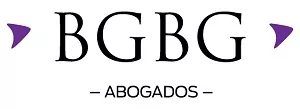On April 16, 2019, the General Provisions on Self-Regulation Programs were published in the Official Federal Gazette due to the performance of vulnerable activities.
From July 2013 until December 31, 2018, the Tax Administration Service ("SAT", in Spanish) may, prior authorization on its part, cancel any fines deriving from the failure to submit notices, and from existing irregularities regarding compliance with several obligations contained in the Federal Law on the Prevention and Identification of Transactions with Illegally-Obtained Resources ("FLPITIOR"), or the Anti-Money Laundering Law. Any interested individual or company must submit an application via the official anti-money laundering website and must be up to date in its obligations for 2019, as set forth in such Law.
In connection with these Provisions, the 2019 Fiscal Year Federal Revenue Law sets forth, in its provisional articles, that the persons bound to submit notices as per the FLPITIOR may be subject to a self-regulation program based on the assumptions and requirements established in the General Provisions that the SAT issues to that end.
The requirements for benefiting from this self-regulation program are:
- Submitting an application through the System of the Anti-Money Laundering Portal.
- Appearing in the list of liable parties.
- Having updated the data provided by the relevant liable party in the list of vulnerable activities, under the General Rules referred to in the FLPITIOR.
- Being up to date, as of the date when the application is submitted, in the obligations corresponding to 2019.
- Not incurring in any offense set forth in the FLPITIOR.
In addition, it is important to consider the following:
- The SAT may, at any time, monitor the level of progress and fulfillment of the self-regulation program.
- The SAT may penalize anyone who has not cured the irregularities or breaches subject matter of the program.
Authorization for this self-regulation program will be denied in the following scenarios:
- If the fines to be canceled derive from actions or omissions implying the existence of aggravating circumstances in the commission of any of the violations set forth in the FLPITIOR.
- If the fines to be canceled derive from irregularities that entail the commission of an offense set out in the FLPITIOR.
- If a liable party has started a defense method against the fine to be canceled (unless a competent authority has ratified and agreed to a dismissal).
- If, as of the date of the cancellation, the relevant liable party has already paid the fine that will be canceled.
- If the requirements mentioned in this document (REQUIREMENTS) are not met.
- If the self-regulation program has not been fulfilled in time or in whole, or else, if the program authorization has been rendered null and void.
Originally published April 23rd, 2019.
The content of this article is intended to provide a general guide to the subject matter. Specialist advice should be sought about your specific circumstances.


